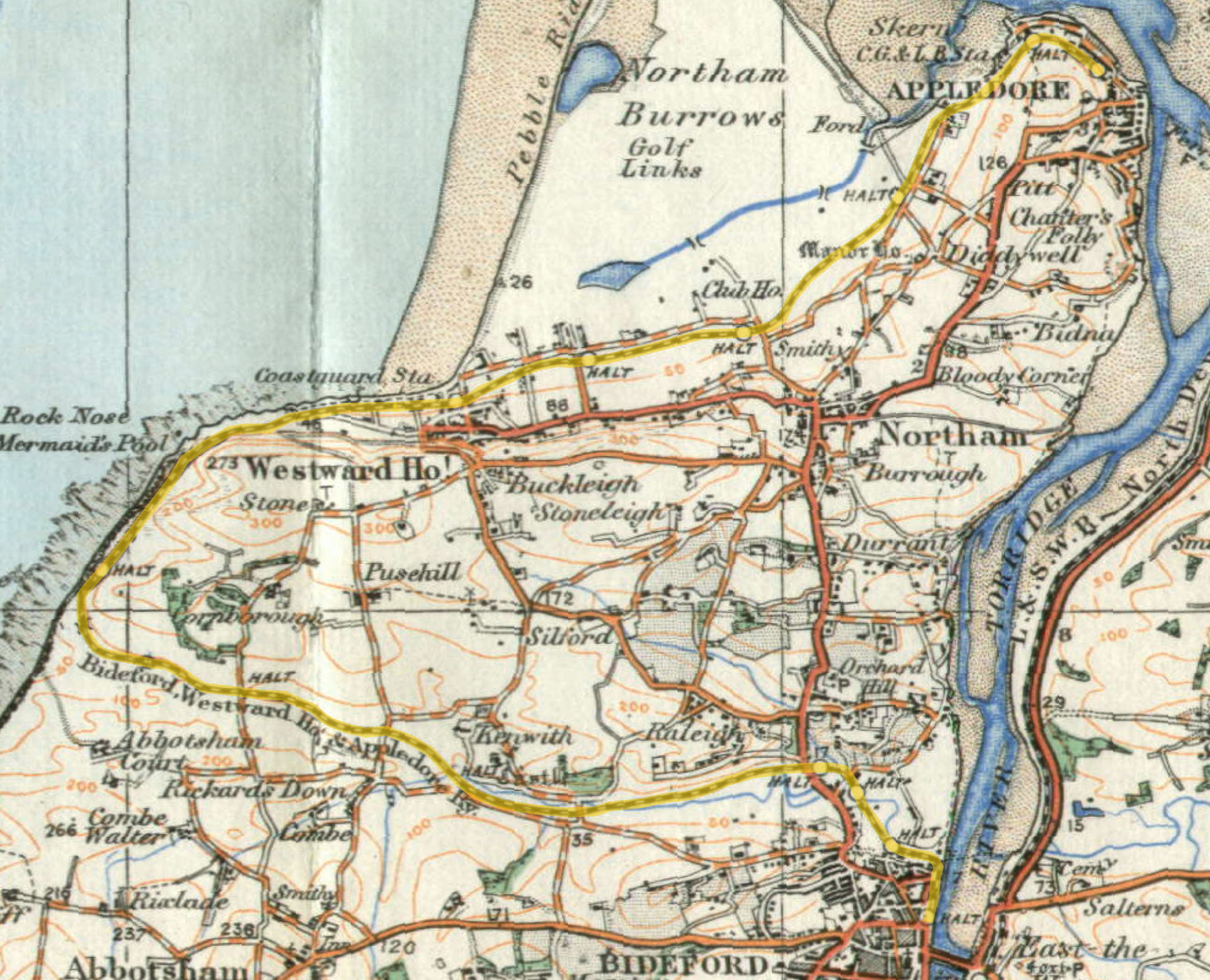|
Westward Ho! Railway Station
Westward Ho! railway station was a railway station in north Devon, north-west of Bideford, serving the village of Westward Ho!; a tourist community within the parish of Bideford. The village name comes from the title of Charles Kingsley's novel ''Westward Ho!'' (1855). The exclamation mark was therefore an intentional part of the station's name; the only station in the United Kingdom bearing an exclamation mark. History This was the busiest station on the line and a Mr. John Loughlin was the station master;Garner, Page 113 the signalman was a Mr.Spry. Mr. F.W.Galliford managed the refreshments room.Jenkins, Page 106 Infrastructure Westward Ho! had two platforms of 320 feet length and one foot above rail level, platform lighting, a passing loop of 8 chains allowing three coach trains to pass, a ticket office with waiting rooms and toilet, an 8-lever signal box and a 2-lever ground frame; a waiting room, refreshment room, bookstall, level crossing gates and a Concert Hall ca ... [...More Info...] [...Related Items...] OR: [Wikipedia] [Google] [Baidu] |
Map BWHA Railway
A map is a symbolic depiction emphasizing relationships between elements of some space, such as objects, regions, or themes. Many maps are static, fixed to paper or some other durable medium, while others are dynamic or interactive. Although most commonly used to depict geography, maps may represent any space, real or fictional, without regard to context or scale, such as in brain mapping, DNA mapping, or computer network topology mapping. The space being mapped may be two dimensional, such as the surface of the earth, three dimensional, such as the interior of the earth, or even more abstract spaces of any dimension, such as arise in modeling phenomena having many independent variables. Although the earliest maps known are of the heavens, geographic maps of territory have a very long tradition and exist from ancient times. The word "map" comes from the , wherein ''mappa'' meant 'napkin' or 'cloth' and ''mundi'' 'the world'. Thus, "map" became a shortened term referring t ... [...More Info...] [...Related Items...] OR: [Wikipedia] [Google] [Baidu] |
